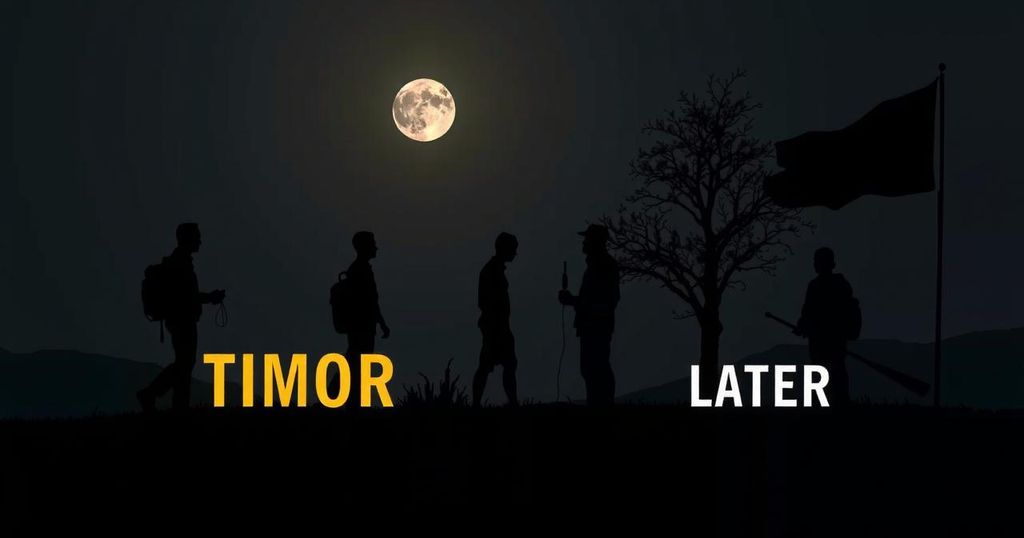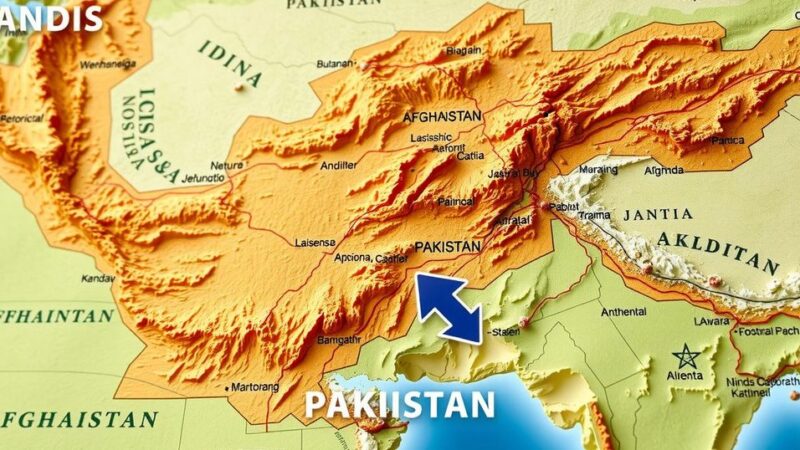Thirty years after the Santa Cruz massacre, the East Timor and Indonesia Action Network (ETAN) urges global accountability for human rights abuses during the Indonesian occupation of Timor-Leste. The massacre, which involved the killing of over 270 peaceful protesters, marked a pivotal moment in the region’s struggle for independence and remains unresolved today. ETAN calls for justice for victims and accountability for nations that supported Indonesia during its oppressive regime, emphasizing the ongoing human rights violations in the region.
On the 30th anniversary of the Santa Cruz massacre, the East Timor and Indonesia Action Network (ETAN) calls upon the international community to take a firm stance against the ongoing impunity for human rights violations that occurred during the Indonesian occupation of Timor-Leste. John M. Miller, the National Coordinator of ETAN, emphasized, “The Santa Cruz massacre is among the most notorious crimes committed by Indonesia during its illegal occupation of Timor-Leste and has waited too long for justice. Those responsible for the massacre and for the many other crimes against humanity during Indonesia’s illegal occupation need to be held accountable for their crimes.” On November 12, 1991, Indonesian troops, armed by the United States, opened fire on hundreds of peaceful protesters advocating for self-determination and decrying military atrocities. The attack resulted in the immediate deaths of over 271 East Timorese, with many more unaccounted for, presumed dead. The massacre marked a significant turning point in the struggle for independence of Timor-Leste and was widely documented by foreign journalists, including Allan Nairn and Amy Goodman. Their accounts, alongside filmmaker Max Stahl’s footage, effectively countered Indonesian propaganda and spurred the growth of grassroots movements—including ETAN—advocating for Timor’s self-determination. Throughout the prolonged occupation, Indonesian forces committed mass atrocities with apparent impunity, resulting in an estimated 184,000 East Timorese fatalities, alongside severe incidents of torture, sexual violence, and displacement. Timor-Leste achieved independence in 2002, yet the scars of this dark period remain. ETAN reiterates that the people of East Timor deserve to know the fate of their missing loved ones, as the lack of justice and accountability hampers both Timor-Leste and Indonesia’s ability to uphold human rights and establish a lawful society. Miller further stressed, “Impunity for decades of systematic Indonesian military and police atrocities prevents both Timor-Leste and Indonesia from respecting human rights and consolidating the rule of law.” In light of recent developments, Indonesia’s human rights violations have been exacerbated, particularly with increased military actions in West Papua and intimidation tactics against human rights defenders and activists. Miller also points out the complicity of Western governments, specifically the United States, Britain, and Australia, who provided military aid and support during the Suharto regime, highlighting, “the U.S and other governments that armed and trained Indonesia’s security forces during the Suharto dictatorship now actively pursue business-as-usual with Indonesia, leaving no room for genuine accountability for their collusion with Timor’s oppression.” This enduring lack of accountability for past crimes serves as a reminder of the urgent need for justice for the victims.
The Santa Cruz massacre of November 12, 1991, was a defining moment in the history of East Timor, reflecting the brutal realities of Indonesian rule over the territory. During a peaceful demonstration calling for independence, Indonesian forces killed hundreds of unarmed protesters, an act that stands as one of the most egregious violations of human rights in the region’s quest for self-determination. The event drew international attention and condemnation, yet to this day, justice remains elusive for the families of the victims. The aftermath of the massacre catalyzed global advocacy for East Timor’s independence, leading to its eventual liberation in 2002. Despite independence, the remnants of violence and the unresolved fates of the deceased persist, creating an environment where full accountability has not been achieved, particularly for those nations complicit in Indonesia’s oppressive regime.
The 30th anniversary of the Santa Cruz massacre stands as a stark reminder of the need for justice for the victims of human rights abuses in Timor-Leste. ETAN’s call to action highlights the ongoing impunity that persists in the region and the failure of international entities to hold accountable those responsible for atrocities committed during the Indonesian occupation. Victims’ families continue to seek closure, and it is imperative for both Indonesia and the global community to acknowledge past crimes and strive for a future where human rights are respected and upheld. The legacy of the Santa Cruz massacre must compel both recognition and action to prevent such violations from occurring again.
Original Source: www.genocidewatch.com







